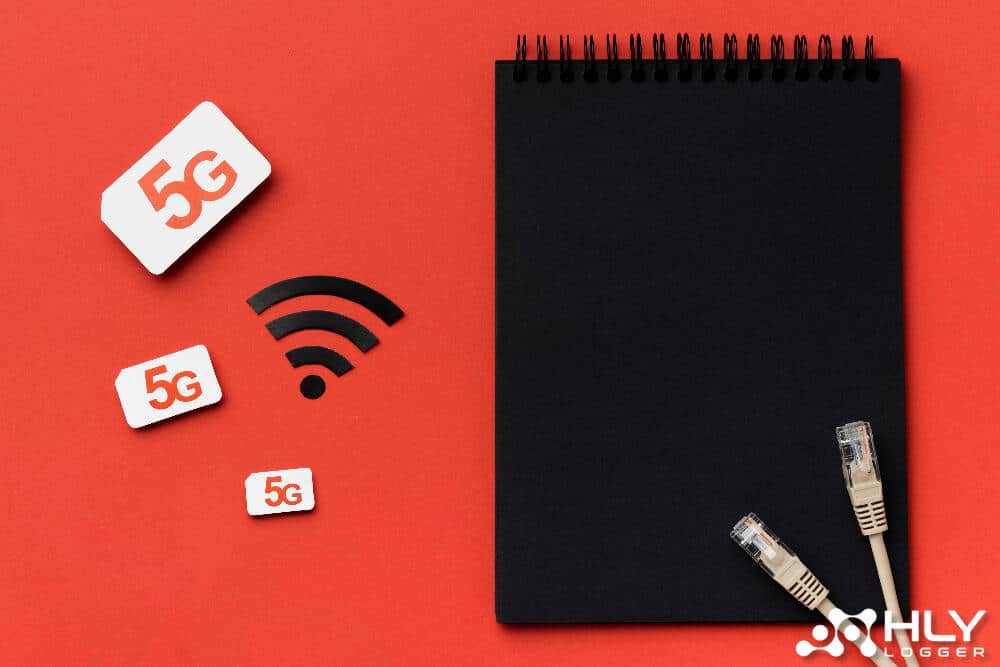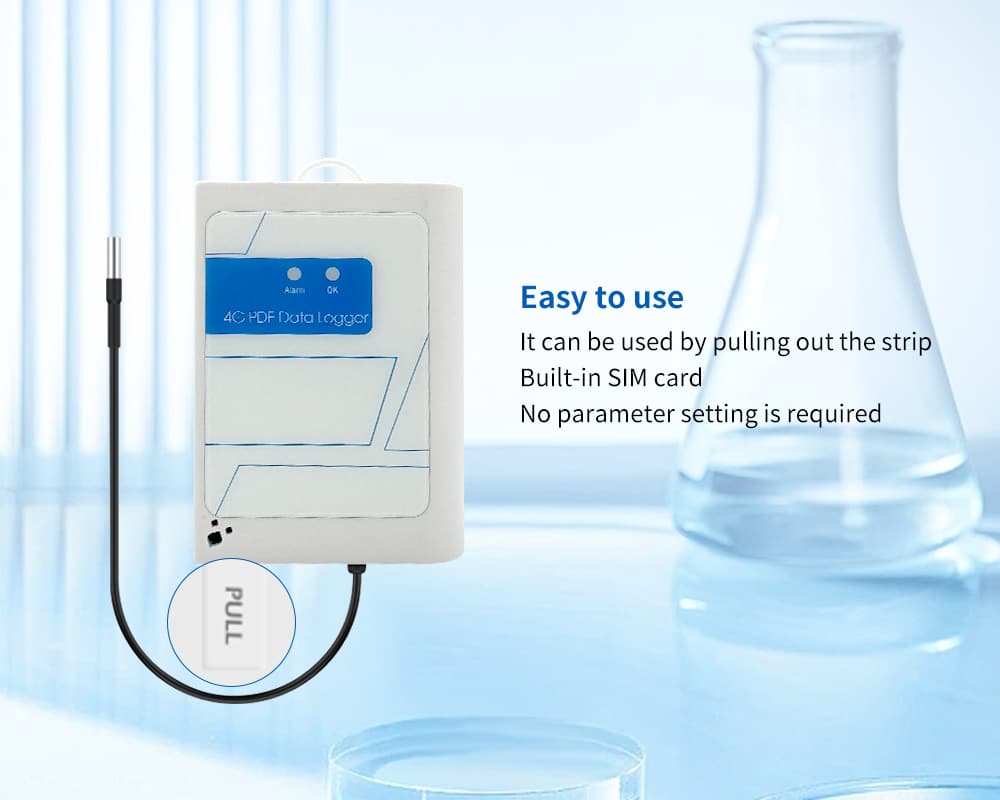GSM data loggers are important devices for monitoring and recording data remotely via GSM (Global System for Mobile Communications) networks. These data loggers usually work in applications that require real-time data delivery to remote locations or when device access is limited.
The application of GSM data loggers is very broad and covers almost all industrial sectors. In industries such as oil, gas, mining, or logistics, GSM data loggers can track conditions such as pressure, temperature, or equipment status remotely.
This device is also very helpful for those who work in the environmental monitoring sector. It is highly beneficial in agriculture, remote weather stations, or conservation projects to monitor parameters such as soil moisture, temperature, humidity, and others.
Next, the most extensive application of GSM data loggers occurs in cold chain monitoring. Cold chain logistics is one of the most crucial logistics operations because it involves the storage and delivery of products sensitive to temperature and humidity. Data loggers that use GSM cellular networks help the system monitor the storage conditions of perishable goods during transportation and storage. This is a highly reliable device for critical applications.
Contents
Important Features in GSM Data Loggers
GSM data loggers are fully supported by various features that make them very useful for monitoring and recording data remotely. Here are some important features of that data loggers:
GSM Connection
Global System for Mobile Communications is an international standard cellular network communication that many companies use for various low-speed data communications, such as sending emails or browsing the internet on older devices.
In today’s digital era, GSM connections are also very useful in IoT applications, such as GSM data loggers, vehicle tracking systems, and various devices that utilize wireless connectivity. Using a GSM module to send data via SMS, email, or even HTTP to a server or other device in real-time is highly beneficial. This cellular network allows remote monitoring and control without relying on local Wi-Fi connections.
Real-time Alerts and Notifications
These data loggers can be configured to send alerts via SMS or email if the data value exceeds the specified limit. For example, if the temperature becomes too high during a logistics shipment, real-time notifications can ensure a quick response to these abnormal conditions. Furthermore, timely action from the IoT solution can reduce the risk of damage or system failure.
Remote Monitoring
Continuous monitoring certainly requires a lot of effort and energy. GSM data loggers can send data continuously or periodically to an application or monitoring device in another location. The monitor does not have to be physically present during the process. With this advantage, it can also reach various remote areas.
Additionally, the battery life of GSM data loggers is quite long, with low power consumption. This feature ensures that the system can operate without interruption using batteries for months or even years. You don’t need to worry anymore if you need to monitor remote locations, even where there is no easy source of electricity.
Multi-Channel or Multi-Sensor Capability
This feature allows multiple sensors to connect and monitor various parameters simultaneously, such as temperature and humidity or multiple locations. This makes it easier to monitor various variables in one device, reducing the need for multiple monitoring devices.
Additionally, some GSM data loggers can integrate with cloud-based data management systems or IoT (Internet of Things) devices. This allows for further data analysis, visualization, and automatic reporting.
Ideal GSM Data Loggers
There are several types of GSM data loggers you can choose from, depending on your needs. There is a Standalone GSM Data Recorder, which is an independent device for recording and sending data.
Then there is the GSM Module for Integration, which is typically used to integrate GSM communications into a custom data recording system. Next, there is the Multichannel Data Recorder, where this device can connect to multiple sensors for comprehensive data recording.
The ideal GSM data logger is one that suits the specific monitoring conditions and locations. Furthermore, these data loggers can provide real-time data updates and notify users if a problem occurs. This makes them highly useful in industries and sectors that require continuous monitoring.
GSM data loggers are invaluable for remote monitoring, data collection, and sending information to even the most difficult-to-reach locations. The choice of GSM data recorder type depends on the specific application, such as monitoring temperature, humidity, pressure, or more advanced uses like vehicle tracking and energy management.
The variety of types and features allows users to choose the device that best suits their needs.
About HLY Technology Co., Ltd
HLY Technology Co., Ltd is always ready to assist you in choosing the ideal GSM data recorder according to the environmental conditions you want to monitor.
We have been in this industry since 2011 and have been innovating for a long time while maintaining a strong focus on Research and Development. We continuously implement advanced technologies such as GSM/CDMA/UMTS, ZIGBEE, LoRa, WiFi, Bluetooth, and NB-IOT in each of our innovative products.
Our product range includes GPRS, NB-IOT, Bluetooth, CDMA, ZIGBEE, and 433MHz wireless temperature and humidity data recorders. You can directly choose data loggers that suit your needs, whether disposable or reusable, GSM, 3G, 4G, or real-time cellular networks.
Additionally, our GSM-enabled devices are highly beneficial, even in cases where there are network connection disruptions, ensuring uninterrupted data monitoring.


